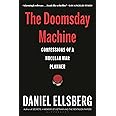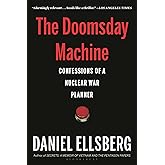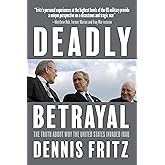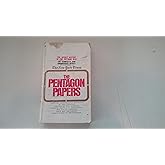
Amazon Prime Free Trial
FREE Delivery is available to Prime members. To join, select "Try Amazon Prime and start saving today with FREE Delivery" below the Add to Cart button and confirm your Prime free trial.
Amazon Prime members enjoy:- Cardmembers earn 5% Back at Amazon.com with a Prime Credit Card.
- Unlimited FREE Prime delivery
- Streaming of thousands of movies and TV shows with limited ads on Prime Video.
- A Kindle book to borrow for free each month - with no due dates
- Listen to over 2 million songs and hundreds of playlists
Important: Your credit card will NOT be charged when you start your free trial or if you cancel during the trial period. If you're happy with Amazon Prime, do nothing. At the end of the free trial, your membership will automatically upgrade to a monthly membership.
Buy new:
-15% $18.74$18.74
Ships from: Amazon.com Sold by: Amazon.com
Save with Used - Good
$9.97$9.97
Ships from: Amazon Sold by: GreatBookDealz

Download the free Kindle app and start reading Kindle books instantly on your smartphone, tablet, or computer - no Kindle device required.
Read instantly on your browser with Kindle for Web.
Using your mobile phone camera - scan the code below and download the Kindle app.



 Audible sample
Audible sample Follow the author
OK
Secrets: A Memoir of Vietnam and the Pentagon Papers Paperback – September 30, 2003
Purchase options and add-ons
In 1971 former Cold War hard-liner Daniel Ellsberg made history by releasing the Pentagon Papers - a 7,000-page top-secret study of U.S. decision-making in Vietnam - to the New York Times and Washington Post. The document set in motion a chain of events that ended not only the Nixon presidency but the Vietnam War. In this remarkable memoir, Ellsberg describes in dramatic detail the two years he spent in Vietnam as a U.S. State Department observer, and how he came to risk his career and freedom to expose the deceptions and delusions that shaped three decades of American foreign policy. The story of one man's exploration of conscience, Secrets is also a portrait of America at a perilous crossroad.
"[Ellsberg's] well-told memoir sticks in the mind and will be a powerful testament for future students of a war that the United States should never have fought." -The Washington Post
"Ellsberg's deft critique of secrecy in government is an invaluable contribution to understanding one of our nation's darkest hours." -Theodore Roszak, San Francisco Chronicle
- Print length528 pages
- LanguageEnglish
- PublisherPenguin Books
- Publication dateSeptember 30, 2003
- Dimensions5.5 x 1.12 x 8.42 inches
- ISBN-100142003425
- ISBN-13978-0142003428
Book recommendations, author interviews, editors' picks, and more. Read it now
Frequently bought together
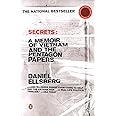
Customers who viewed this item also viewed
Editorial Reviews
Review
"Ellsberg's deft critique of secrecy in government is an invaluable contribution to understanding one of our nation's darkest hours." (Theodore Roszak, San Francisco Chronicle)
About the Author
Excerpt. © Reprinted by permission. All rights reserved.
For eleven years, from mid-1964 to the end of the war in May 1975, I was, like a great many other Americans, preoccupied with our involvement in Vietnam. In the course of that time I saw it first as a problem, next as a stalemate, then as a moral and political disaster, a crime. The first three parts of this book correspond roughly to these emerging perceptions. My own personal commitment and subsequent actions evolved along with these changing perspectives. When I saw the conflict as a problem, I tried to help solve it; when I saw it as a stalemate, to help us extricate ourselves, without harm to other national interests; when I saw it as a crime, to expose and resist it, and to try to end it immediately. Throughout all these phases, even the first, I sought in various ways to avoid further escalation of the conflict. But as late as early 1973, as I entered a federal criminal trial for my actions starting in late 1969, I would have said that none of these aims or efforts—neither my own nor anyone else’s—had met with any success. Efforts to end the conflict—whether it was seen as a failed test, a quagmire, or a moral misadventure—seemed no more to have been rewarded than efforts to win it. Why?
As I saw it then, the war not only needed to be resisted but remained to be understood. Thirty years later I still believe that to be true. This book represents my continuing effort—far from complete—to understand my country’s war on Vietnam, and my own part in it, and why it took so long to end both of those.
For three years starting in mid-1964, with the highest civil service grade, I had helped prosecute a war I believed at the outset to be doomed. Working in Washington under top decision makers in 1964‒65, I watched them secretly maneuver the country into a full-scale war with no real promise of success. My pessimism during those years was not unbroken, and for about a year—from the spring of 1965 to the spring of 1966—I hoped for and worked toward some sort of success. That was after the president, despite many misgivings, including his own, had committed us to war. Once we were fully committed, I volunteered in mid-1965 to serve in Vietnam as a State Department civilian. My job came to be evaluating “pacification” in the countryside. In this I drew on my earlier training as a marine infantry commander to observe the war up close. Whether we had a right—any more than the French before us—to pursue by fire and steel in Indochina the objectives our leaders had chosen was a question that never occurred to me. But during two years in Vietnam, its people and plight became real to me, as real as the U.S. troops I walked with, as real as my own hands, in a way that made continuing the hopeless war intolerable.
Knocked out of the field with hepatitis and back in the United States in mid-1967, I began to do everything I could imagine to help free our country from the war. For two years I did this as an insider, briefing high officials, advising presidential candidates, and eventually, in early 1969, helping the president’s national security adviser, Henry Kissinger, discover uncertainties and alternatives. But later that same year I felt called on to go beyond this approach and so to end my career as a government insider.
One of these actions risked my own freedom. In 1969 and 1970, with the help of my friend Anthony Russo, a former Rand associate, I secretly photocopied the entire forty-seven-volume Pentagon Papers, a top secret study of U.S. decision making in Vietnam from 1945 to 1968, which were then in my authorized possession, and gave them to Senator William Fulbright, chairman of the Senate Foreign Relations Committee. In 1971 I also gave copies to the New York Times, to the Washington Post, and ultimately, in the face of four unprecedented federal injunctions, to some seventeen other newspapers, all of which defied the government in printing them for the public to read.
I wasn’t wrong about the personal risks. Shortly thereafter I was indicted in a federal court, with Russo later joining me in a second, superseding indictment. Eventually I faced twelve federal felony charges totaling a possible 115 years in prison, with the prospect of several further trials for me beyond that first one. But I was not wrong, either, to hope that exposing secrets five presidents had withheld and the lies they told might have benefits for our democracy that were worthy of the risks. This truth telling set in motion a train of events, including criminal White House efforts to silence or incapacitate me, that led to dismissal of the charges against me and my codefendant. Much more important, these particular Oval Office crimes helped topple the president, an act that was crucial to ending the war.
This is the story of the greatest change in my life, which began well after my return from Vietnam. The disillusionment of the brief hopes that I experienced in Vietnam and the skepticism toward the war that I brought back in mid-1967 were not really new for me. On the contrary, they were a return to the pessimism that I had acquired on a first trip to Vietnam in 1961 and that had been reinforced in my first year in the Pentagon from mid-1964. By 1968 this skeptical mood was widely shared inside the government, perhaps even more than in the public. This was a time when my general desire to see the war ended did not distinguish me from almost any of my colleagues in the government or government-sponsored research, whether or not they had served in Vietnam. An entire generation of Vietnam-era insiders had become just as disillusioned as I with a war they saw as hopeless and interminable. I was like them in most respects, no different in character or values, no less committed to the cold war, to anticommunism, to secrecy, and to the presidency. By 1968, if not earlier, they all wanted, as I did, to see us out of this war. Indeed this poses a question that I have worked at understanding ever since: How could it be, under these circumstances, that after the massive disillusionment of the Tet offensive in early 1968 the war still had seven years to go?
Product details
- Publisher : Penguin Books (September 30, 2003)
- Language : English
- Paperback : 528 pages
- ISBN-10 : 0142003425
- ISBN-13 : 978-0142003428
- Item Weight : 1.05 pounds
- Dimensions : 5.5 x 1.12 x 8.42 inches
- Best Sellers Rank: #322,996 in Books (See Top 100 in Books)
- #535 in Vietnam War History (Books)
- #1,781 in Political Leader Biographies
- #9,586 in Memoirs (Books)
- Customer Reviews:
About the author

Discover more of the author’s books, see similar authors, read book recommendations and more.
Customer reviews
Customer Reviews, including Product Star Ratings help customers to learn more about the product and decide whether it is the right product for them.
To calculate the overall star rating and percentage breakdown by star, we don’t use a simple average. Instead, our system considers things like how recent a review is and if the reviewer bought the item on Amazon. It also analyzed reviews to verify trustworthiness.
Learn more how customers reviews work on AmazonCustomers say
Customers find the book compelling and fascinating. They appreciate the author's insights and ability to describe important historical events. The writing quality is praised as well-written and articulate, with an artful prose style. Readers consider the book worth the price and an eye-opener.
AI-generated from the text of customer reviews
Customers find the book engaging and well-written. They say it's an excellent follow-up to the Pentagon Papers movie. The memoir is considered a critical and important read, especially in this time of new Nixonian nuclear.
"...This is a wonderful book to experience, and in reading it one comes to recognize the formidable skills Ellsberg brings to bear in terms of his..." Read more
"...If it isn't being so already.... Compelling reading." Read more
"...The book is fascinating despite the years that have gone by since the conflict...." Read more
"...An engaging read for anyone interested in American history, politics, and the Vietnam War." Read more
Customers appreciate the book's insights. They find it provides important information about the US government's ability to keep secrets. The memoir contains gems and is a valuable resource for history students. Readers praise the author's skill in describing historical events and providing an interesting background.
"...to experience, and in reading it one comes to recognize the formidable skills Ellsberg brings to bear in terms of his amazing recall, eye for details..." Read more
"...It was indeed informative, but I wasn’t completely immersed the entire time...." Read more
"...a four hundred page book on but Ellsberg turns out to have an interesting background and he has a lot to say...." Read more
"...This autobiography provides insight into his life and motivations, while also meticulously detailing the government's efforts to arrest and silence..." Read more
Customers appreciate the book's writing quality. They find the author articulate and the prose artful. The memoir is written from a perspective that has some experience, and it reads like a novel. Readers also mention that the book is clear, concise, and reads like a fiction.
"...As he explains early in the long yet fascinating monologue, he fully expected to be sentenced to a long prison sentence for having secreted a copy..." Read more
"...Which reads more like a work of fiction than what it truly is: A personal account of what was going on INSIDE the government during the build up and..." Read more
"...I liked that this was written, for lack of better terms, directly from the horse’s mouth...." Read more
"...The book is readable and it states with considerable clarity why the war was wrong." Read more
Customers find the book worth the price. They say it's hard to put down and a real eye-opener.
"...Great price for an important old (2002) book about a mostly-forgotten event, despite its stunning revelations about our Country’s most divisive War..." Read more
"...those who have an interest in the Vietnam War should find it worth the effort...." Read more
"I haven't finished the book yet, but it is already worth the price. It's hard to put down...." Read more
"...I found this book to be a real eye opener and worth every second it took to read it!!!!!!!!!!!" Read more
Reviews with images
Read This Book!
Top reviews from the United States
There was a problem filtering reviews right now. Please try again later.
- Reviewed in the United States on October 10, 2002After finding this book quite by accident while browsing through the wonderful Concord bookstore the other day, I was astounded to find how relevant and interesting a story author Daniel Ellsberg manages to conjure up after all this time regarding his legendary experience leading up to and including the leaking, release and publication of the infamous "Pentagon Papers' by the New York Times. As he explains early in the long yet fascinating monologue, he fully expected to be sentenced to a long prison sentence for having secreted a copy of the highly classified Department of Defense's official history of the American Government's policy and involvement in Vietnam. The report was a damning confirmation of the worst fears of the anti-war movement, and provided overwhelming evidence of the cynical, manipulative, and deceitful character of our government and its deceit to its own people regarding its involvement.
What surprised Ellsberg most in all of this swirling excitement and activity was his own growing celebrity, and while he spent years fearing the worst for his own admitted culpability in defying criminal statues by stealing and leaking official government secrets, eventually the charges against him were dropped based, among other things, on the revelations of the Nixon's plumber's unit's illegal break-in at Ellsberg's psychiatrist's office. Ellsberg was an unlikely hero, a graduate of the Harvard University economics doctoral program, a former marine officer turned defense issue intellectual, a frequent visitor to Vietnam who was rankled by the distinct difference between what he was seeing and experiencing during his visits, on the one hand, and what the official American government position regarding what the situation was on the ground on the other.
Based on this growing dissatisfaction and the discovery of the so-called Pentagon papers, a treasure trove of more than 7,000 pages of carefully documented details about the U.S. Government's involvement in Vietnam and its motives, considerations, and actions, Ellsberg tried to enlist the support of a number of Senators and Congressmen in an effort to use the evidence in the Pentagon Papers to undercut the Government's position and thereby end the war itself. Failing to do so, he finally surrendered the documents to the New York Times, which agreed to publish them through a series of daily excerpts (and also later in an abridged best-selling paperback version). The Government tried to stop publication, but was denied the right to do so by the Supreme Court. Of course, with the publication came an increase in public opposition to the war and a recognition of the degree to which the Executive branch and the military had intentionally misled the public regarding the conduct of the war and the situation on the ground for the moiré than 500,000 troops then stationed in-country. Still, it took more than five more years before the American involvement in Vietnam ended.
This is a wonderful book to experience, and in reading it one comes to recognize the formidable skills Ellsberg brings to bear in terms of his amazing recall, eye for details, and ability to successfully juggle a variety of interacting considerations at the same time. This guy is smarter than the average teddy bear, and it is easy to see how difficult a task it would have been for the Department of Defense and the nitwits over in the White House to try to outmaneuver him. I was a bit surprised at some of the personal revelations in the book, and while it is obvious that Mr. Ellsberg has a healthy ego, he manages for the most part to keep it at bay in retelling a story that could have easily have devolved in a retelling of the David against Goliath epic, but which he keeps objective and factual enough to keep the story rolling along as a recounting of the gripping events that transpired more than thirty years ago and helped to turn the tide of public opinion toward the war in Vietnam. I heartily recommend this book to anyone interested in 20th century American history. Enjoy!
- Reviewed in the United States on December 8, 2013This is a brilliant book. During the time Ellsberg relates, he was constantly called upon to write lengthy and detailed reports for officials already over burdened with endless reports they had to consume. He had to be clear, precise, cogent, and articulate. This highly developed skill is amply demonstrated in this book. Which reads more like a work of fiction than what it truly is: A personal account of what was going on INSIDE the government during the build up and eventual crisis of the Vietnam War. And in the fields and hamlets of Vietnam.
Two quotes to frame the context:
"A popular government, without popular information or the means of acquiring it, is but a prologue to a farce or a tragedy, or, perhaps, both. knowledge will forever govern ignorance: And a people who mean to be their own governors, must arm themselves with the power knowledge gives." James Madison. Quoted by Daniel Ellsberg (p431)
"Once in 1967 after a somewhat pessimistic briefing by John Vann, Rostow, slightly shaken, said, "But you do admit that it'll all be over in six months." "Oh," said Vann somewhat airily, "I think we can hold out longer than that." - The Best And The Brightest p.637 David Halberstam.
Ellsberg's memoir was published before the Snowdon revelations about the true breadth and depth of NSA foreign and domestic data mining. So there is that additional perspective to ponder. Ellsberg, one of Halberstam's Best and Brightest. A true cold warrior, third in line under McNamara. One of the very best and brightest, who came too late to question Vietnam Policy and ordered the compiling of the Pentagon Papers. The history of Presidential folly, self deception and fear of the primitives and isolationist anti communist("You Lost China") lobby. The Pentagon Papers that Ellsberg released to the press.
So we have two profoundly important themes - the abuse of power and executive efforts to restrict access to any remotely pertinent information "top secret". And, in Ellsberg's memoir the circumstances and thinking that made him break with the establishment and publish that top secret information.
"Plus ca change" as the French say. We seem condemned to deprecate the British Empire while seriously intensifying both that Empire's moral (self righteous) certitudes and its most egregious failings and obtuseness.
The one thing that most impressed me about this book is what Elleberg did NOT say. Did not NEED to say, because he writes so clearly the picture is so clear, in all its awful complexity. To be sure he has his own moral point of view. And he lets this show from time to time. Only, I think, to underscore the fallibility of everyone and anyone involved with or observing the unfolding and unravelling of US Vietnam policy. But, for the most part he has chosen his examples and sequence of events and policy decisions to paint a complete portrait, showing far more than he tells. For me this is brilliant.
Not a jeremiad. Just a cool and personal report for the ages. Which, judging by more recent military adventures, we are doomed to repeat and not learn from. There will always be honorable souls, like George Ball, Vann and several others Ellsberg quotes and acknowledges, who will see to the heart of the matter. And there will always be "primitives" (Roosevelt's term) who will scare enough people enough of the time for this tragedy to be repeated. If it isn't being so already....
Compelling reading.
- Reviewed in the United States on June 11, 2024I always found the Pentagon Papers and Watergate intriguing subjects. I actually used this book as a reference in a research paper for a college course about the Vietnam War. I usually don’t read books like this, but I occasionally find a subject I want to learn more about and read as much as I can on it. This book in particular looks at Daniel Ellsberg, a former military analyst/activist, who leaked what was known as the Pentagon Papers. They revealed how the American people were lied to and mislead into believing false information about the war. I liked that this was written, for lack of better terms, directly from the horse’s mouth. It was indeed informative, but I wasn’t completely immersed the entire time. But if you are interested in reading about any topics I have previously mentioned, I definitely recommend this read.
Top reviews from other countries
 George ThomasReviewed in India on December 5, 2024
George ThomasReviewed in India on December 5, 20245.0 out of 5 stars Honesty wins, for once!
This is an examination of conscience. Of the terrible things done in the name of national security. Of petty, cruel people killing people just because they could, and just because getting out of Vietnam seemed a loss of face.
It is the sad story of a long war started on a faulty premise and continued by President after President, despite the tremendous suffering it caused, and the loss of limbs, mind and life recorded in so many books and films, simply because they did not want to look weak.
Many paid the price for this narcissism.
 J. N. LawsonReviewed in France on July 22, 2023
J. N. LawsonReviewed in France on July 22, 20235.0 out of 5 stars Highly Engaging
I remember all too well the events narrated in this book. (It chronicles the events that led to my leaving the US for good.) Ellsberg connects more of the dots between the Pentagon papers, the anti-war movement, his own actions and Nixon’s monarch-like rule over a supposed democracy. It makes clear the abrogation/dereliction of duty by both houses of Congress. Sadly, under Trump, the US has come dangerously close once more to an elected monarchy. A must read for all those who wish to avoid the end of democratic rule. Ellsberg, along with M.L. King, Jr, was one of the towering moral heroes of the late 20th century.
 MattReviewed in Canada on February 8, 2021
MattReviewed in Canada on February 8, 20215.0 out of 5 stars Real life spy thriller
Like many 30-somethings, I was never taught the history of the Vietnam war in school. Plenty about the world wars and the contemporary conflicts, but for whatever reason, a massive gap in mid-century conflicts.
There could really be no better time to read this book than today. The power of the executive branch has lost none of its potency and it is incredible to witness the lack of dignity given to congress let alone the voting public.
Ellsberg is a passionate and driven writer. The book can feel a bit aimless and unbalanced from a plot point perspective but he has so many gems throughout the book and profound insights that you can see a true master of his craft.
I'd rank this more of 4.5 / 5.0 but 4.0 / 5.0 is just cruel. The book is excellent, highly recommended.
 ohneeigenschaftenReviewed in Germany on May 16, 2014
ohneeigenschaftenReviewed in Germany on May 16, 20145.0 out of 5 stars outstanding memoir
This is really an outstanding personal memoir of the Cold War and essential reading. There's nothing more to say except to admire the relentless honesty of the enterprise.
 Barry RyderReviewed in the United Kingdom on March 29, 2013
Barry RyderReviewed in the United Kingdom on March 29, 20135.0 out of 5 stars Hero or villain?
Daniel Ellsberg may not have been the first `whistle-blower' and he certainly isn't the last but, he is, most assuredly, one of the most courageous and effective voices ever to shout above the din of governmental deception.
He did betray his pledge of secrecy and he did break the law. But, ultimately, his actions hastened the end of the Vietnam War and prevented any further carnage. His revelations and refusal to be silenced was also the Genesis of the Watergate scandal which ended with the ignominious resignation of Nixon and the imprisonment of those who had sought so hard to cover-up the duplicity of the White House.
On balance, this reader remains convinced that Ellsberg - and the many who assisted him - is and are heroes.
This book chronicles the author's early involvement and support of the expanding war in Vietnam. Ellsberg believed in the war and its aims and he was deeply committed to it. However, after tours of the battle zones, he began to be struck by the `credibility gap' of what he was seeing and what his government was reporting to the American people.
`Secrets' takes the reader through Ellsberg's crisis of conscience and his eventual `turning'. It's a compelling read. He - and others, too - risked jail and public acrimony for being `traitors' but they did what they believed to be right and carried public opinion with them.
There is much here about how the press, at first wary of involvement, soon became galvanised to publish the Pentagon Papers as the White House sought to silence it. It's gripping from beginning to end.
Some of the most chilling parts are the transcripts of Nixon's taped conversations with Kissinger and others. The reader will be able to examine particular exchanges in which Nixon `sounds out' Kissinger on the possibilities of bursting the dykes and drowning two-hundred-thousand Vietnamese. In another segment, Nixon broaches the possibility of pursuing the nuclear option. When Kissinger baulks, Nixon berates him and chides him, saying, " The nuclear bomb, does that bother you?...I just want you to think big, Henry, for Christ sakes."
To appreciate the maximum effect of these and other taped exchanges, readers might wish to view the DVD `The Most Dangerous Man In America'. It follows this book very closely and actually hearing the voice of Nixon saying these things really is shocking.
barry






